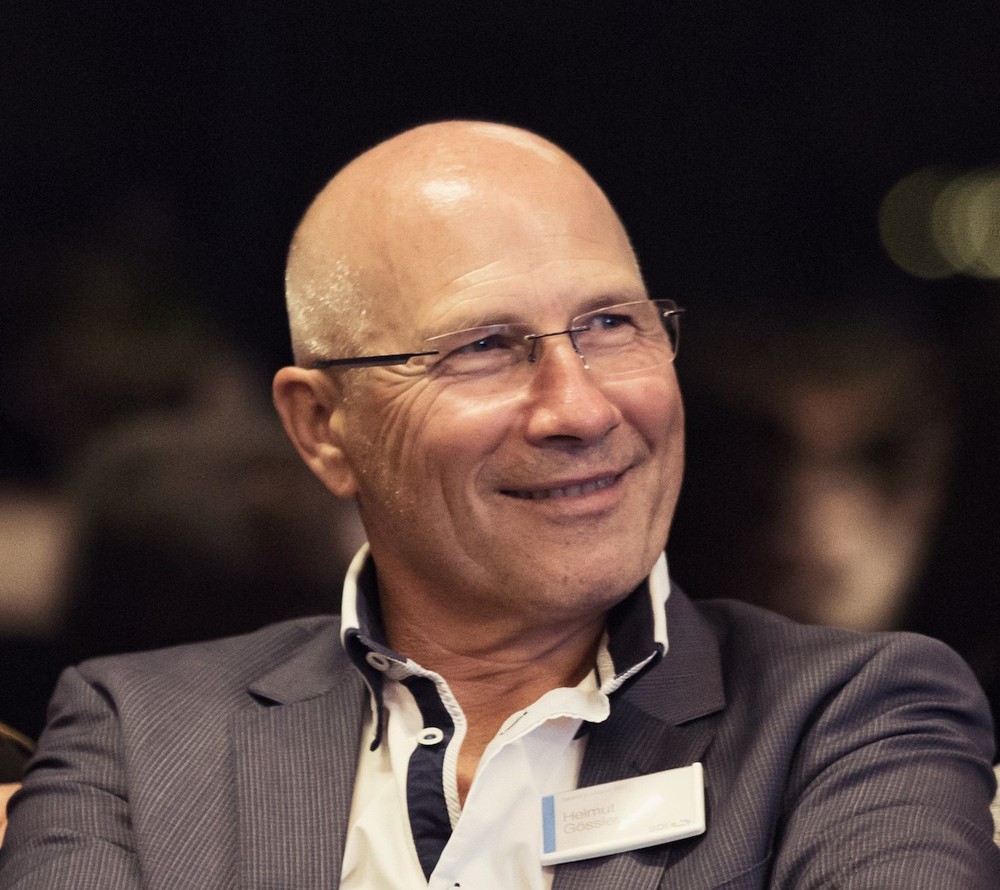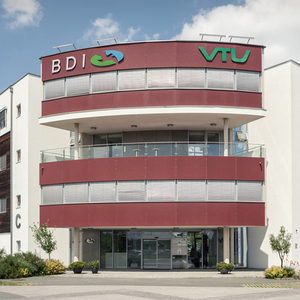BDI-BioEnergy restructures to adapt to changing times, markets



Photo: BDI Holding GmbH
October 1, 2018
BY Ron Kotrba
Austria-based biodiesel technology pioneer BDI-BioEnergy International has recently completed organizational restructuring. “As a result of the restructuring and realignment, we see ourselves better equipped for the future and are now in a position to react more quickly to market changes,” said Helmut Goessler, founder, CEO and major shareholder of BDI Holding GmbH.
In late 2016, following BDI’s 20th anniversary celebration in Vienna, BDI officially delisted from the Frankfurt Stock Exchange back to a privately held, limited corporation. “Since various companies operated under the umbrella of BDI, the establishment of a holding company structure was a logical step,” Goessler told Biodiesel Magazine. “As a result, the different operative business areas have been installed, and they are clearly separated as independent companies under the strong financial umbrella of BDI Holding GmbH.”
The daughter companies of BDI Holding GmbH are BDI-BioEnergy International GmbH, BDI-BioLife Science GmbH and BDI-Betriebs GmbH.
BDI-BioEnergy International’s core business remains specialized plant engineering and construction with a primary focus on “from waste to value.” Core technologies offered by BDI-BioEnergy International include multifeedstock biodiesel technology, biomass-to-liquid technology (BioCrack), and greentech process solutions, such as phosphorous recycling from sewage sludge combustion ashes.
Advertisement
Advertisement
The core business of BDI-BioLife Science is the development, production and business-to-business sales of algae-based products, such as astaxanthin.
BDI-Betriebs is company established to operate and maintain the biogas plant next to the Göss brewery, which uses spent grain of the beer-making process for production of biogas for steam generation at the brewery and production of green electricity for the grid through combined heat and power.
The former daughter company UIC GmbH, a supplier of high-vacuum distillation units, was sold in July. “Furthermore,” Goessler added, “BDI Holding GmbH holds shares of three companies: VTU Holding GmbH, VTU Beteiligungen GmbH and Ecomotion Spain.”
Advertisement
Advertisement
According to Goessler, the delisting from the Frankfurt stock exchange was a consequence of increasingly burdensome legal constraints and obligations regarding reporting and public information concerning BDI’s business activities. “To be able to act more quickly regarding necessary adaptations of business strategies and activities, the founders and main shareholders of BDI—Wilhelm Hammer and myself—decided to try to regain total control of BDI.”
Goessler also noted the downturn in the stock market enthusiasm for greentech companies, especially biofuels, since the mid-2000s. “With its reorganization, BDI wants to streamline its business activities and refocus on two fields,” he said. Those two fields are specialized plant engineering and construction, and biolife science. “In order to separate these business fields from each other and thus to ensure ideal market penetration in the different segments, the two daughter companies have been founded.” Goessler said both companies base their business on strong, in-house R&D. “The financially strong mother company BDI Holding GmbH is not only a back-up for the daughter companies,” Goessler said, “but it also looks for additional business opportunities complementing the current business fields.”
Finally, Goessler noted that restructuring has allowed for simplification of the organization of BDI’s group of companies, “especially in the administrative areas,” he said.
Ultimately, the change in company structure enables the individual business segments to focus even better on their long-term goals, Goessler said.
“Despite the different structure of the subsidiaries, synergies between the operational, administrative and research-oriented units are ideally exploited,” he explained. “The best example is the construction of the algae production plant of BDI-BioLife Science GmbH in Hartberg, Austria. Joint in-house R&D played a key role in the development of the cultivation process. The implementation and construction of the plant was carried out by the competence and know-how of BDI-BioEnergy International GmbH.”
Related Stories
U.S. fuel ethanol capacity fell slightly in April, while biodiesel and renewable diesel capacity held steady, according to data released by the U.S. EIA on June 30. Feedstock consumption was down when compared to the previous month.
XCF Global Inc. on July 8 provided a production update on its flagship New Rise Reno facility, underscoring that the plant has successfully produced SAF, renewable diesel, and renewable naphtha during its initial ramp-up.
The USDA’s Risk Management Agency is implementing multiple changes to the Camelina pilot insurance program for the 2026 and succeeding crop years. The changes will expand coverage options and provide greater flexibility for producers.
EcoCeres Inc. has signed a multi-year agreement to supply British Airways with sustainable aviation fuel (SAF). The fuel will be produced from 100% waste-based biomass feedstock, such as used cooking oil (UCO).
SAF Magazine and the Commercial Aviation Alternative Fuels Initiative announced the preliminary agenda for the North American SAF Conference and Expo, being held Sept. 22-24 at the Minneapolis Convention Center in Minneapolis, Minnesota.
Upcoming Events










